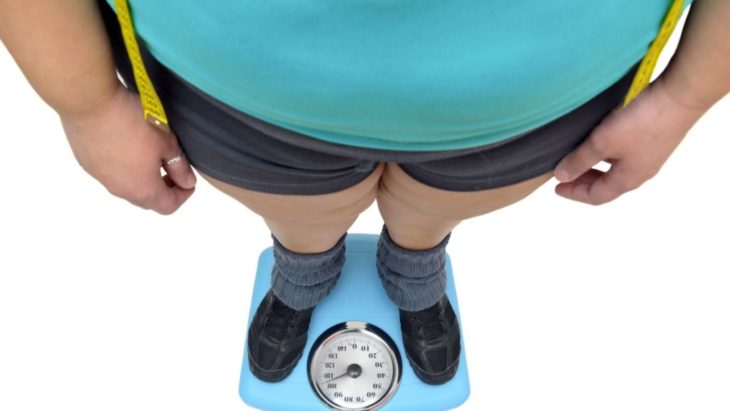The Biggest Loser, a television program that follows clinically obese individuals pushing their limits to lose weight, just completed its 17th season in February. But as it turns out, the hard labor that a season on the reality series entails can have lasting consequences. On Tuesday, the National Institute of Diabetes and Digestive and Kidney Diseases (NIDDK) released a study revealing how extreme weight loss impacts fat bodies, and the results were shocking.
Dr. Kevin Hall, a scientist at the NIDDK, followed contestants of the series’ 8th season and discovered that 13 out of the season’s 14 contestants had dramatically regained weight, and four of them were even heavier than they had been, at the start of the season. One contestant, Danny Cahill, gained back more 100 pounds. The study found that Cahill, now 295 pounds, must consume 800 calories less than the average man in order to avoid gaining weight.
How did that happen? Hall’s new study reveals that it’s all about metabolism.

Source: Shutterstock
Resting metabolism determines the amount of calories an individual is able to burn at rest. At the beginning of every season, overweight individuals had ordinary metabolisms in proportion with their body types, so they were able to burn an appropriate amount of calories for people of their weight. But at the end of the show, their metabolisms slowed dramatically, and consequently, their bodies were not burning enough calories to maintain their thinner sizes. It’s been six years since season 8 wrapped up, and according to the study, their metabolisms still have yet to recover.
Altogether, the study and its findings are pretty spooky, but they also serve as an important reminder that despite how quick we are to judge plus-size individuals, we still know too little about fat bodies and the way they work to be critical. Here’s just a few myths, in light of today’s discoveries:
Contents
1. All overweight people are overweight because they’re lazy.

Source: Dhanwanthari Ayurveda
If this study proves anything, it’s that even if you work your ass off, biology can still defeat the best of us. You can go on a reality show, dramatically lose weight, and permanently stunt your metabolism, or just naturally be born with a slower one.
2. But metabolism is pretty much the same for everyone, right?

Source: iStock
True, all humans have some form of metabolism. For those of you who weren’t awake in your biology classes, metabolism is the process that breaks down what we eat/drink and converts this into energy we use for literally everything. But it varies per person because we all have different basal metabolic rates (BMR’s). Your BMR determines the amount of calories individual bodies require in order to perform basic functions, and are partially hereditary.
BMR’s are also determined by height and body composition, which both are influenced by heredity, as well. But other factors affecting BMR include age and gender, due to the higher muscle mass men inherently have
3. You can control your metabolism.

Source: AARP
To an extent, we can determine our weights by the choices we make, such as balancing our calorie intakes, not taking in more than what we’re burning, etc. Such dramatic cases as those of contestants of The Biggest Loser are rare, and in most cases, no one is doomed to be overweight or underweight just by merit of the metabolism they were born with.
However, while you can choose behaviors that will help you to achieve and maintain a certain weight, you are essentially adjusting your behaviors to work around your metabolism than you are, actually controlling your metabolism.
4. There are no drawbacks to losing weight.

Source: The Independent
Even in cases far less dramatic than The Biggest Loser, individuals dieting and attempting to lose weight, even if they are of underweight, will experience a slowdown in their metabolisms at the end of it. In most cases, however, one’s metabolism will typically recover… which is exactly why researchers were stunned when, over the course of six years, the metabolisms of season 8’s contestants never recovered. Extreme weight loss can also dramatically lower blood sugar levels, in some cases, which is also fairly dangerous.
So, in short, exercise might be healthy, but like most things in life, it’s healthy in moderation. Supporters of the growing body positivity movement, rejoice: At the end of the day, loving and going easy on your body might be one of the healthiest choice you could make.
Original by Kylie Cheung
